An extra degree of security known as two-factor authentication (2FA) requires a user to provide a second authentication factor in addition to their login and password. Usually, the person has something (a smart card or hardware token) or something unique to them (a code) as this second authentication factor. The danger of automated assaults that wreak havoc on single password authentication systems is reduced by this multi-layered, defense-in-depth approach to authentication.
So, which sectors need and gain most from two factor authentication, and how can EnQualify two factor authentication can help them?
The finance and banking industry has been using 2FA (two-factor authentication) technology for added security. For example, when using an ATM, you need both your PIN and your ATM card to access your bank account.
As banking industry and its services move online, organizations need to implement 2FA to protect customers and their assets. Organizations that process card payments also need to comply with PCI-DSS, which may require more than two authentication factors.
Furthermore, a lot of countries have regulations and standards in place requiring the banking sector to employ robust authentication procedures. For instance, many forms of electronic payments must adhere to the Payment Services Directive 2 (PSD2) in Europe, which mandates strong customer authentication (SCA), which frequently entails 2FA.
Financial institutions can easily onboard new clients with the EnQualify two factor authentication solution, which allows them to use self-service ID and face verification while securing every step with biometric authentication.
Patients and healthcare providers may be at risk when sending electronic documents. Portals for healthcare are also becoming increasingly widespread. When combined with the industry’s stringent privacy regulations, two factor authentication proves to be a useful instrument. Healthcare providers can ensure the privacy of their patients’ information by implementing 2FA. For Know Your Patient processes, with user-friendly interface of EnQualify, medical professionals may avoid medical identity theft through facial and ID verification, therefore combating healthcare fraud.
Sensitive databases and classified information are commonplace in government entities. With two factor authentication technology, users are usually asked to submit a combination of something they have (such a physical token or a mobile device) and something they know (like a password) to confirm their identities in public agencies as well.
Sensitive information, including criminal histories, intelligence reports, and current investigations, is kept up to date in databases maintained by law enforcement organizations. To strengthen the security of these databases and stop unwanted access, two factor authentication is commonly used as public institutions become more modern and tech-friendly.
Travel companies and hotels may employ biometric authentication, verify user identities, and stop fraudulent behaviors like credit card or identity theft by putting AI-powered identity verification systems in place. Two factor authentication can work for travel and hospitality industy for online reservations and payments. Furthermore, EnQualify‘s AI on mobile edge technology can quickly verify visitor identity using Face Match and KYC checks after the reservation step.
In order to improve security, safeguard confidential information, adhere to legal requirements, cultivate client confidence, and fend off online attacks, businesses must use two-factor authentication (2FA). It mitigates the dangers associated with passwords and illegal access by adding an additional layer of security on top of passwords. In order to secure remote access, adhere to industry standards, and show that data safety is a priority, two factor authentication is essential for banking industry, e commerce, government agencies, internet companies, apps and so on. Hence, it is an efficient way to proactively guard against changing threats and guarantee the security of business systems.
Because two-factor authentication (2FA) has been shown to be successful in boosting security and safeguarding sensitive data, businesses can trust it. Here some of the reasons:
Users must supply two distinct authentication factors when using 2FA. Given that attackers would have to breach two of the elements in order to get access, this multi-layered strategy greatly lowers the danger of unauthorized access.
Businesses in a variety of sectors, including technology, finance, and banking industry, have embraced 2FA. It has been put through a thorough testing process and has shown to be successful in preventing illegal access to accounts and systems.
Using two factor authentication as a security precaution is encouraged or mandated by a number of regulatory frameworks and industry standards. To improve security, for instance, the National Institute of Standards and Technology (NIST) in the US advises using multi-factor authentication.
Nowadays, ordinary users can accept and utilize modern two factor authentication solutions more easily as they are convenient and easy to use. While keeping a high degree of security, techniques like biometric authentication, push notifications, and mobile app-based authentication have enhanced the user experience.
Two-factor authentication (2FA) helps prevent credit card theft in e-commerce. In fact, the growth rate of fake charges is double that of e-commerce sales. E-commerce platforms handle a great lot of financial and personal data, such as addresses, credit card information, and past purchases. Because of this, hackers find them to be appealing targets. This may be a major problem, especially for expensive products. Businesses may ultimately bear the cost. Deliveries and reimbursements to deceived clients are expensive. Businesses may prevent this and boost their profits by implementing 2FA.
In order to improve security and safeguard client data, two factor authentication for e commerce industry is becoming more and more popular among top e-commerce platforms and online merchants, even if it may not be specifically required by law in this sector.
Considering e commerce example, customers can quickly and safely register their accounts online using EnQualify’s AI-driven ID authentication tool, all without jeopardizing their critical account information. With the integration of biometrics, merchants will see customer engagement and conversions, with a 99% accuracy rate in less than a minute. In this way, they can reduce chargeback rates and fradualent shopping instances.



Industries
Company
Resources
Copyrights © EnQualify | All rights reserved. Privacy Policy | Cookie Policy | Terms of Use | Security & Compliance